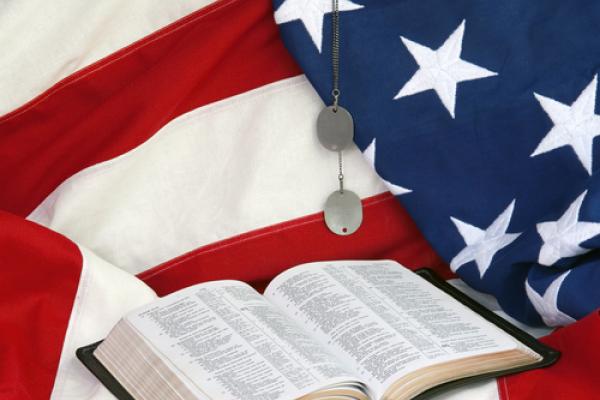Recently, CantonRep.com interviewed the Rev. Wendy Bausman, associate pastor at Christ Presbyterian Church in Canton, Ohio:
A Navy chaplain for 15 years, Bausman joined the Christ Church staff in 2003. She got involved in her first political campaign as a volunteer in 2008, working phone banks and handing out materials at such events as the Stark County Fair.
“What was so surprising, particularly at the fair, was how people treated us, the intensity of the feeling. It was beyond passionate,” she said.
What came next was a surprise.
“In the military, we give up certain freedoms for everyone else to have theirs,” Bausman said. “So here I am, finally feeling free to say what I believe. I had a bumper sticker on my van, and two friends told me face-to-face, ‘I want to rip off your bumper.’ As a former officer, let me tell you, that elicited certain feelings in me. I’m thinking, ‘I protected your freedoms, but you want to deny mine?’ More than anything, it hurt.”
This is not an unusual story. Faith and politics are enmeshed with each other in both vital and destructive ways.
Over the weekend, Rick Santorum spoke about President Obama’s environmental policies by saying, "It's not about you. It's not about your quality of life. It's not about your job. It's about some phony ideal, some phony theology. Oh, not a theology based on the Bible, a different theology, but no less a theology."
He has clarified that this comment was not intended to question the president’s faith or character. But, it raises the question. Does theology matter when it comes to evaluating political leaders? How does this whole faith and politics thing work?
Both Barack Obama and Rick Santorum have strong records on supporting legislation and funding policies that fight global poverty and pandemic diseases. Both men have talked about how their concern for the poor is motivated by their faith.
I feel comfortable with that and I think most people do. It is an example of political figures expressing their personal motivation behind widely held values that aren’t exclusive to a particular religious tradition.
There are some religious beliefs, such as a particular stance on infant baptism, understanding of the Trinity, or belief in what occurs when Christians observe the Lord’s Supper that are significant theological claims. But they aren’t good or appropriate benchmarks by which to evaluate political candidates.
Other beliefs might be automatic disqualifiers. If you believe that the only government God condones is a direct theocracy or monarchy, then those beliefs would directly interfere with a politician’s ability to fulfill the duties of public office. Or, you might not want a Christian Scientist, whose religious beliefs condemn most practices in modern medicine as immoral, to be appointed Surgeon General.
Then there are areas that are stickier. The Catholic Church systemically excludes women from leadership within the church. This does not mean all Catholics are sexist and that all Catholic politicians would enact sexist public policy. But it would be an area where you should evaluate the candidate based on past performance and current policy proposals. Their theology is significant insofar as it would clearly affect public policy.
That’s what leaders like Rev. Bausman are calling on other pastors to consider. Over the past few weeks, a pledge about faith and politics during the election has been circulating among pastors and Christian leaders. Rev. Bausman is one of over 1,300 signers and the pledge reads in part:
As a Christian leader, I believe that faith is very important and has a role in public life. Many people in this country, including our political leaders, are shaped and influenced by their religious beliefs.
However, during national elections faith is often used and abused. While it is appropriate to evaluate a leader's moral compass what values they use to make decisions when considering candidates, it is not appropriate to dismiss a candidate outright because of their religious affiliation.
I believe that candidates should primarily be judged based on their past performance and current policy proposals.
Our country has served as a model for the world by holding no religious test for office and protecting a diversity of religious beliefs. This tradition has helped make our country strong and free; it should be built upon and not forgotten.
Ultimately, the office of president or a seat in Congress is a political position, not a religious one. Therefore, I believe that it is damaging to the Christian moral witness in our culture to confuse fidelity to our faith with support for any politician of the moment.
Rev Bausman said of the pledge, “I read it, and I thought ‘This is me.’ It’s helping me to keep track of my own behavior; what I say and do. I saw it as adding my voice to pastors and other people of faith to help send the message that we believe in being civil is a calling of our faith.”
This pledge is an acknowledgement that faith plays a dynamic and often complicated role in our interaction with politics. It cannot be divorced from the public realm but it also can’t take it over.
Click here if you are a pastor or Christian leader and want to add your voice to Rev Bausman’s.
Tim King is Communications Director for Sojourners. Follow Tim on Twitter @TMKing.
American flag and bible image via Shutterstock
Got something to say about what you're reading? We value your feedback!
